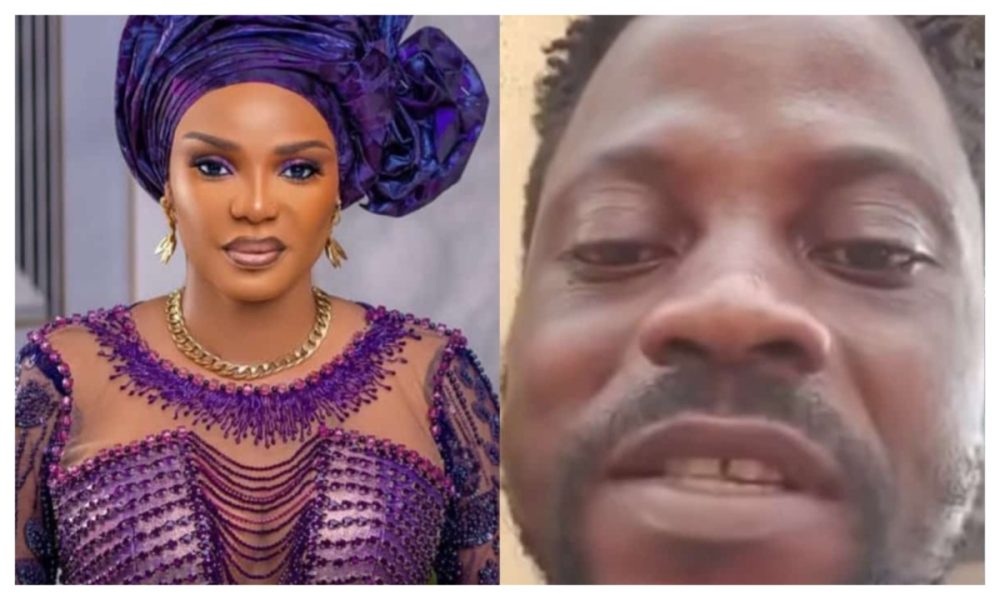Entertainment
Timeline: Four Nigerians, Other African Grammy Awards Winners

The biggest music event, the Grammy Awards, will be going down with its 66th edition in Los Angeles on Sunday, with a converging of the best of music stars from Africa and around the world, and this year’s edition won’t be any different.
Since the 1960s, the recognition of exceptional projects by African artists has been a tradition, marked by South Africa’s Mariam Makeba becoming the first African artist to receive the Grammy Awards.
Here are 14 African acts that have won Grammy awards.
Makeba (South Africa)
In 1966, South Africa’s Miriam Makeba, also known as Mama Africa, became the first African recording artist to win the Grammy Awards, just seven years after the award was first held.
Makeba won Best Folk Record for her album “An Evening With Belafonte/Makeba,” with American singer Harry Belafonte at the 8th Grammy awards .
Sade Adu (Nigerian-British)
Helen Folasade Adu was born in Ibadan, to a Yoruba-ancestry father and an English mother. She was the lead vocalist for her band, Sade, which bears her name.
READ ALSO: Workers’ Protest, Ground Ondo Varsity Over Unpaid Wage Award
In 1986, she won the ‘Best New Artist’ Grammy Awards. She also won the ‘Best R&B Performance By A Duo or Group with Vocal’ for “No Ordinary Love” (1993), the ‘Best Pop Vocal Album for’ “Lovers Rock” (2001), and the ‘Best R&B Performance By A Duo or Group with Vocals’ for “Soldier of Love” (2011) at the Grammy Awards.
Ladysmith Black Mambazo (South Africa)
In 1988, South Africa’s male choral group won the ‘Best Traditional Folk Recording’ for the song ‘Shaka Zulu’.
The group received 17 nominations and won four more Grammy awards: Best Traditional World Music Album for “Raise Your Spirit Higher” (2004), Best Traditional World Music Album for “Ilembe: Honoring Shaka Zulu” (2009), Best World Music Album for “Live: Singing for Peace Around the World” (2013), and Best World Music Album for Shaka Zulu Revisited: 30th Anniversary Celebration (2018).
Ali Farka Touré (Mali)
Regarded as one of Africa’s most internationally renowned musicians, Toure received a total of five nominations, winning three times at the Grammy Awards.
He won the Best World Music Album for “Talking Timbuktu” (1994) and the Best World Music Album for “In The Heart Of The Moon” (2005). Following his death in 2006, he was posthumously awarded Best Traditional World Music Album for “Ali and Toumani” (2010) at the 53rd Grammy Awards.
READ ALSO: Ekiti School Pupils Kidnap: Ondo Amotekun Deploys 100 Personnel, Parades 31 Suspects
Cesária Évora (Cape Verde)
Évora started as a club singer in the port city of Mindelo and became famous as the “Barefoot Diva,” performing without shoes in tribute to the poor.
She received six nominations, winning the Best Contemporary World Music Album for “Voz dámor” (2004) at the 47th Grammy Awards.
Youssou N’Dour (Senegal)
Ranked as one of the greatest singers of all time, N’Dour helped develop a style of popular Senegalese music known by all Senegambians.
He won the Best Contemporary World Music Album for “Egypt” (2005).
RedOne (Morocco)
Nadir Khayat popularly known as ‘Red One’, is considered one of the most influential record producer artists in contemporary music.
He has eight Grammy Awards nominations, winning Best Dance Recording for “Poker Face” (2010) and Pop Vocal Album for “The Fame Monster” (2011).
READ ALSO: Over 30 Feared Dead As Tanker Explodes In Imo
Tinariwen (Mali/Algeria/Libya)
The group consists of individuals from the nomadic Tuareg people of the Sahara.
They won the World Music Album for “Tassili” (2012) at the 54th Grammy Awards.
Wouter Kellerman (South Africa)
Kellerman is a South African flautist, producer, and composer who explores the versatility of the instrument and fuses classical and contemporary sounds.
He won the Best New Age Album for “Winds Of Samsara” (2015) and the Best Global Music Performance for “Bayethe” (2022) at the 57th and 64th Grammy Awards respectively.
Angélique Kidjo (Benin)
Beninese-French artiste Angélique Kidjo is the African artist with the most Grammy Awards.
She won in 2007, 2015, 2016, 2020, and 2022 in the categories: ‘Best Contemporary World Music Album,’ Best World Music Album (won three times), and Best Global Music Album,” respectively.
Burna Boy (Nigeria)
Nigerian Afrobeats star Damini Ogulu (Burna Boy) is the first Nigerian male artist to win the Grammy Awards for an original work.
Burna Boy won the Best Global Music Album for “Twice As Tall” (2021). At the 66th Grammy Awards, he received four nominations.
READ ALSO: gBurna Boy To Perform At 2024 Grammy Awards
Wizkid (Nigeria)
Ayodeji Balogun ‘Wizkid’ is regarded as one of Nigeria’s greatest musical acts.
Wizkid won the Best Music Video category, for his collaboration on the track “Brown Skin Girl” with Beyoncé and Blue Ivy at the 63rd Grammy Awards in 2021.
Black Coffee (South Africa)
“The DJ/producer’s victory represents a shift around ideas of what African musicians are capable of, from traditional genres and folk music to the high-tech world of electronic dance music,” Grammy stated.
Black Coffee won the Best Dance/Electronic Music Album for “Subconsciously” (2022) at the 64th Grammy Awards.
Tems (Nigeria)
Temilade Openiyi popularly known as Tems won the Best Melodic Rap Performance for “WAIT FOR U” (Future, Drake & Tems) at the 65th Grammy Awards.
Entertainment
Allwell Ademola’s Brother Seeks Iyabo Ojo’s Forgiveness At Sister’s Burial [VIDEO]

The late actress Allwell Ademola’s brother, has publicly apologised to Iyabo Ojo after calling her out for not supporting his sister when alive.
DAILY POST reports that Allwell’s younger brother had earlier dragged actor Lateef Adedimeji, Iyabo Ojo and other Nigerian A-listers for posting pictures of the late actress after her death.
Iyabo Ojo responded, “I over supported your sister when she was alive. I featured in her movies countless times for free.”
READ ALSO:Iyabo Ojo Calls On Wizkid, Tiwa Savage To Help Seek Justice For Mohbad
However, during the service of songs for the late actress on Thursday January 8 2026, her brother approached Iyabo Ojo and begged her for forgiveness.
“Big mummy please don’t be offended, you can see that I didn’t abuse you in the viral video. Please I’m sorry.”
While prostrating to beg her, Iyabo Ojo quickly embraced him and said “O ti lo (it’s a thing of the past) to God I have forgiven you.”
Click here to Watch the moment or watch below:
Entertainment
Asake Reconciles With Father, Baby Mama After Viral Accusations Of Abandonment

Popular Nigerian musician, Asake, has finally reconciled with his father, his daughter and baby mama.
The reconciliation move came after he was called out online for abandoning them after he became rich and famous.
Asake was heavily criticised earlier in 2025, after his baby mama, Adijat accused him of neglect despite standing by him when he had nothing.
In March 2025, Asake’s father, Fatai Odunsi, who is a stroke survivor, also called him out for abandoning him.
READ ALSO:Asake Takes Over Ailing Father’s Treatment After Media Dragged Him
Following the backslash from netizens, including some celebrities, Asake reached out to his father and promised to finance his medical bills and also buy him a house.
However, a trending photo of the singer with his father, which surfaced online on Friday morning, signaled a return to harmony.
This came a few days after Asake reunited with his daughter and his baby mama.
Entertainment
Wizkid Becomes First African Artist To Surpass 10 Billion Streams On Spotify

Nigerian singer, Ayodeji Balogun, popularly known as Wizkid, has made history as the first-ever African artist to surpass ten billion streams on the global streaming music platform Spotify.
The Ojuelegba crooner achieved the feat as his streams across all credits on the platform recently hit the 10 billion-stream mark.
His collaborative hit with Canadian superstar Drake and British singer, Tyla is his most streamed song on the platform with almost 4 billion streams.
READ ALSO:Asake Tops Apple Music Nigeria’s 2025 List As Wizkid, Davido, Seyi Vibez Make Top Five
His third studio album, ‘Made In Lagos Deluxe’ is his most streamed project on Spotify with over a billion streams.
Wizkid’s most streamed song as lead is ‘Essence’ featuring Tems, which has amassed over 333 million streams.
Meanwhile, American singer Billie Eilish’s ‘Birds Of A Feather’ has surpassed Tones and I’s ‘Dance Monkey’ as the most streamed solo song by a female artist in Spotify history.
‘Birds Of A Feather’ recently hit 3.37 billion to surpass ‘Dance Monkey’, which has 3.3 billion streams.

 News3 days ago
News3 days agoHow To Calculate Your Taxable Income

 Business5 days ago
Business5 days agoNNPCL Reduces Fuel Price Again

 Metro5 days ago
Metro5 days agoAAU Disowns Students Over Protest

 Metro3 days ago
Metro3 days agoEdo widow-lawyer Diabolically Blinded Over Contract Seeks Okpebholo’s Intervention

 Metro5 days ago
Metro5 days agoEdo: Suspected Kidnappers Kill Victim, Hold On To Elder Brother

 Headline3 days ago
Headline3 days agoRussia Deploys Navy To Guard Venezuelan Oil Tanker Chased By US In Atlantic

 Metro3 days ago
Metro3 days agoJUST IN: Court Grants Malami, Wife, Son N500m Bail Each

 Entertainment3 days ago
Entertainment3 days agoVIDEO: ‘Baba Oko Bournvita,’ Portable Drags His Father, Alleges Bad Parenting, Extortion

 Metro5 days ago
Metro5 days agoNine Soldiers Feared Dead In Borno IED Explosion

 Politics3 days ago
Politics3 days ago2027: Details Of PDP Leaders, Jonathan’s Meeting Emerge




























